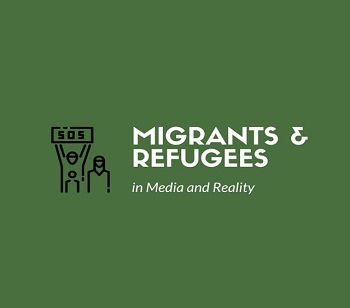EFSAS is pleased to announce the completion of Erasmus+ Strategic Partnership project
April 6, 2022
The EU-funded Erasmus+ KA2 Strategic Partnership project "Migrants and refugees in media and real life” (2019-3-DK01-KA205-074715) has run over the course of 18 months and has been implemented by EFSAS together with partners from Denmark, Estonia and France. As of January 2022 the project has been finalised.
Today, communication technologies occupy a pivotal role in the narratives that especially young people are exposed through the usage of the internet. As communication technologies shape what kind of narratives are disseminated and promulgated, radical and nationalist groupings throughout Europe have become increasingly savvy in exploiting the digital space as one where they can reproduce their classical distinction between in and out groups to ultimately justify the marginalization of the out group. In contemporary European societies, this out group is predominantly constituted by individuals and communities from migrant, refugee, and especially Muslim backgrounds. The intersection between communication technologies, new media, and anti-minority narratives has subsequently created a novel and changing phenomenon contemporary European societies have to address.
Crucially, the use of new media for the promotion of such narratives highlights the need to develop new media literacy skills to respond to these changing trends and changing platforms.
As a result, the project developed an E-handbook of best practices that examines political trends in partaking countries and proposes methods to improve the media literacy skills of young people exposed to radical messaging. The handbook includes reports on how the Danish, Estonian, French, and Dutch societies have responded to the growing presence and visibility of (non-Western) migrants and refugees in their midst, with responses often being shaped by distrust and anxieties of cultural erosion. The overlap in these reactions highlights the shared political trends observable throughout Europe. The handbook furthermore includes instructions for activities that youth practitioners can implement in their daily work. These activities are aimed to facilitate reflection on the presuppositions of the participants and encourage participants to empathize with the perceptions of migrants and refugees. Therefore, given the completion of the project, the E-handbook is now made available online to maximize the outreach of the project’s findings.


